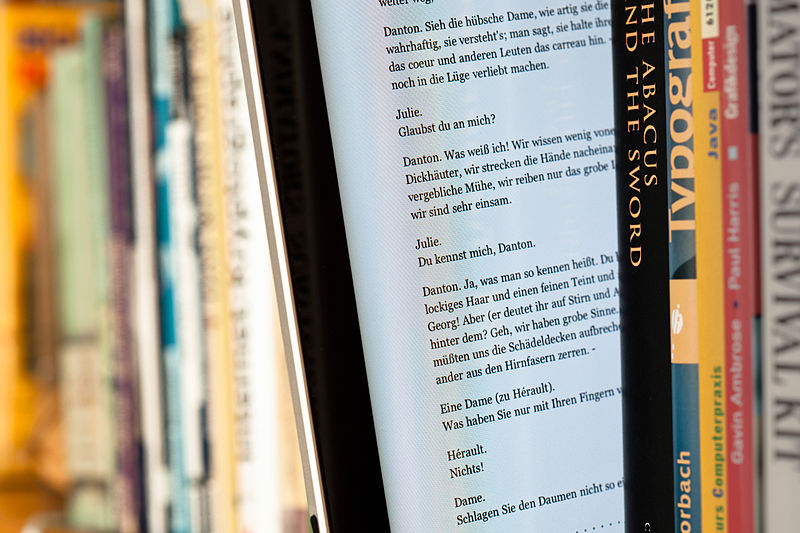Tablet PC or Paperback? Your Choice!
Published on 09 January 14
1994
0
Reading is one of the pastimes that a lot of people enjoy to this day. Even with the emergence of new technologies like laptops and tablet PCs, people still read for enjoyment. Bookshops are still thriving business nowadays and there are still a number of people who prefer paperback or hardbound books. However, with the new technologies like tablet PCs, going digital is said to be the future of publishing. This is why there is also a need for an 3-port USB 3.0 docking station for the constant supply of power for the tablet PC.

There are good things about choosing digital copies over the paperback ones. For one, fewer resources are used like trees and water as there is no need to produce paper where to print the pages of the book. This is a welcome for those groups who are pushing for utilizing fewer natural resources too. We all know that producing a book does leave a huge carbon footprint because of the resources needed to make it. From electricity to heat to the paper to the ink needed to produce a single book, we are aware that all of the processes need natural resources in order to be made.
But even with the resources used, making a tablet PC also does take a huge chunk of the carbon footprint that we leave. The production of electronics which are the main components of a tablet PC as well as an Sydnee iPad charging station does need as much natural resources as those needed to produce a book. The amount of energy needed to produce a tablet PC can be about 3 times more which can be overwhelming for someone who does not know the facts.
Water is another natural resource that this being used up in making any of these two products. For books, you need about 7 gallons of water on the average in order to produce a single copy. Think about the books inside the bookshop and you can just imagine the amount of water needed to produce all of those on display. However, tablet PCs also need even more, like 79 gallons of water per device that is manufactured. If you combine all of the books and tablet PCs that you see now, it would be like a flashflood has been dumped in your city. This does not yet include the resources needed to produce the accessories like Thunderbolt cable among other things.
So you really cannot say that choosing one over the other is better as both items do leave behind a huge carbon footprint. With tablet PCs, you use less paper but you consume more energy as you need to keep it charged with an iPad charging station to keep up with your reading. It really depends on what you need and the convenience that you prefer.

There are good things about choosing digital copies over the paperback ones. For one, fewer resources are used like trees and water as there is no need to produce paper where to print the pages of the book. This is a welcome for those groups who are pushing for utilizing fewer natural resources too. We all know that producing a book does leave a huge carbon footprint because of the resources needed to make it. From electricity to heat to the paper to the ink needed to produce a single book, we are aware that all of the processes need natural resources in order to be made.
But even with the resources used, making a tablet PC also does take a huge chunk of the carbon footprint that we leave. The production of electronics which are the main components of a tablet PC as well as an Sydnee iPad charging station does need as much natural resources as those needed to produce a book. The amount of energy needed to produce a tablet PC can be about 3 times more which can be overwhelming for someone who does not know the facts.
Water is another natural resource that this being used up in making any of these two products. For books, you need about 7 gallons of water on the average in order to produce a single copy. Think about the books inside the bookshop and you can just imagine the amount of water needed to produce all of those on display. However, tablet PCs also need even more, like 79 gallons of water per device that is manufactured. If you combine all of the books and tablet PCs that you see now, it would be like a flashflood has been dumped in your city. This does not yet include the resources needed to produce the accessories like Thunderbolt cable among other things.
So you really cannot say that choosing one over the other is better as both items do leave behind a huge carbon footprint. With tablet PCs, you use less paper but you consume more energy as you need to keep it charged with an iPad charging station to keep up with your reading. It really depends on what you need and the convenience that you prefer.
This review is listed under
Gadgets
and Digital Media & Games
Community
Related Posts:
Post a Comment

 Heather
Heather



